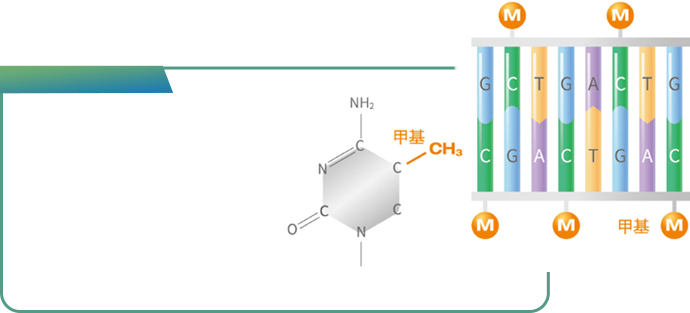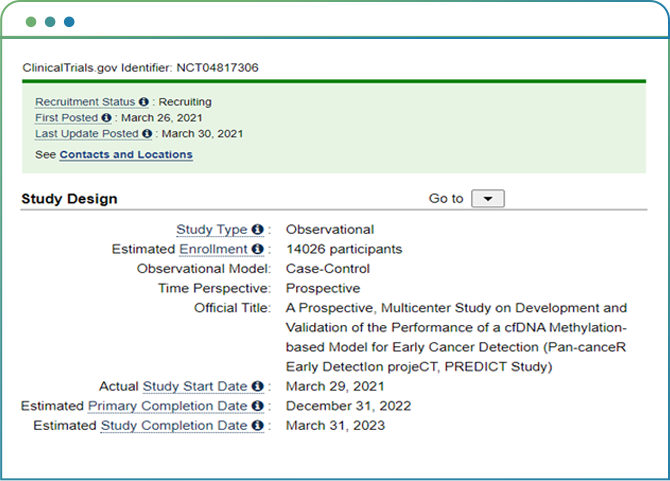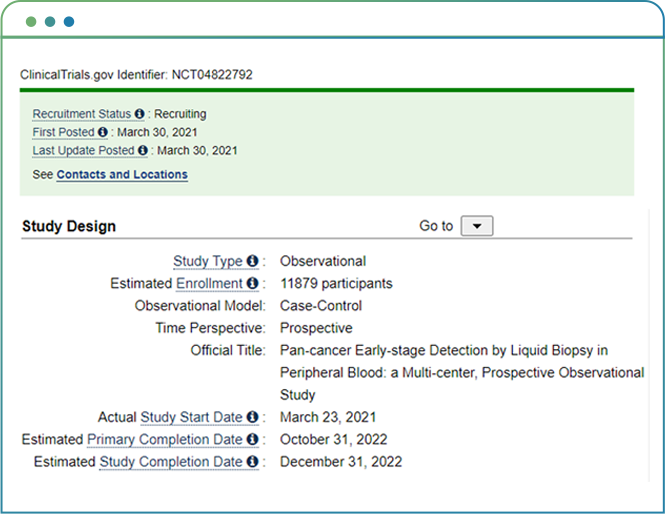The 5-year cancer-related mortality in patients with distant metastatic cancer



The 5-year cancer-related mortality in patients with distant metastatic cancer


The 5-year cancer-related mortality in patients with localized cancer


Detection of cfDNA
methylation signals based
on liquid biopsy
High-throughput sequencing
covers 8,000+
methylation sites,
fully covering cancer signals























